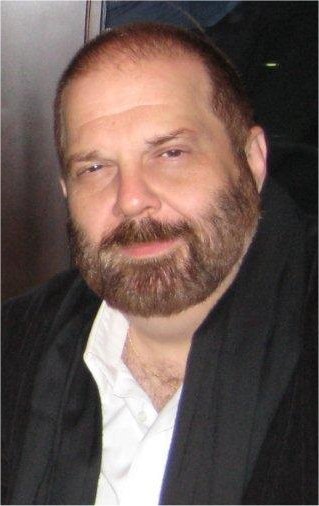This interview was first published at Israeli National News and republished here with the author’s consent.
FIGHTING DISCRIMINATION AND ANTI-SEMITISM ON THE INTERNET
Manfred Gerstenfeld interviews Ronald Eissens
 “The International Network against Cyber Hate (INACH) fights discrimination and other forms of cyber hate on an international level by educating, acting for the removal of discriminatory postings, as well as initiating legal action. The network has twenty member organizations from nineteen countries. The Simon Wiesenthal Center Europe is also a member.
“The International Network against Cyber Hate (INACH) fights discrimination and other forms of cyber hate on an international level by educating, acting for the removal of discriminatory postings, as well as initiating legal action. The network has twenty member organizations from nineteen countries. The Simon Wiesenthal Center Europe is also a member.
“There are major problems with Facebook concerning hate-postings. The main problems involve postings about Holocaust denial. In a difficult conversation we had with the European Director of Facebook he said, ‘We remove most of the postings on Holocaust denial.’ We said, ‘You should remove all of them.’ He replied, ‘There is also Holocaust denial which is not considered hatred.’ We laughed in his face and said, ‘The essence of Holocaust denial is anti-Semitism.’ Finally he said, ‘I’m sorry, but these are my American boss Mr. Zuckerberg’s views.’”
Ronald Eissens is General Director and Co-Founder of the Dutch NGO Magenta Foundation, which focuses on international human rights and anti-racism. Along with Suzette Bronkhorst, he founded in the Netherlands the world’s first complaint bureau for combating hatred on the internet. He is also a Co-Founder of INACH.
Eissens remarks, “On YouTube and Twitter, discriminatory remarks are also being posted. YouTube is unwilling to remove videos with discriminatory remarks, or does so only after much pressure and complaints. YouTube is now part of Google and INACH is at present in discussions with the legal counsel of Google Europe, who has promised that our requests will be handled faster and better.
“The relationship with Twitter will hopefully also improve, as they will be opening regional offices in the near future. Until now, Twitter refused to remove discriminatory remarks because they are based in the U.S. and thus only have to comply with the lenient American legislation. The number of anti-Semitic postings and those about Holocaust denial on Twitter are fairly high.
“The Magenta subsidiary MDI follows discriminatory posts on the internet in Dutch and acts against them. If we complain to an interactive website about a discriminatory post from a reader, it is often removed. In recent years however, we also get many complaints about non-interactive websites where one cannot post reactions. The managers of these sites are often negative toward our demands for removal of discriminatory texts, because they have placed them there themselves. Partly because of this reason, our ‘removal percentage’ in 2011 has declined further to 71%. We have all in all made 516 demands for removal to managers. In 363 cases, their replies were positive.”
Eissens clarifies: “MDI is not a monitoring organization. That would require much additional personnel, for which we do not have the funds. We are thus dependent upon those who contact us with complaints. This leads to ‘under-reporting’ of discrimination on the internet. Many people no longer complain because they believe the situation won’t change. This is often the case with complaints about anti-Semitism related to hate postings about Israel.
“Until 2010, anti-Semitism including Holocaust denial was the main expression of discrimination on the Dutch language internet. Gradually, discrimination against Muslims has passed it. Other groups facing discrimination are Eastern Europeans, homosexuals, Roma and Sinti, autochthonous Dutchmen, Antilleans, people from Surinam, Africans, Moroccans and Turks. There is also discrimination on the basis of gender.
“We have to mark the difference between legally punishable postings and those which are discriminatory yet not illegal. The percentage of punishable postings on anti-Semitism is high. This is because most anti-Semitic postings are extreme and of a ‘classic’ nature. Regarding these there is a large Dutch jurisprudence.
“Anti-Semitism on the internet is an insidious danger. It reintroduces old stereotypes, rehashes them and allows them to permeate broad areas of the population. There are leading members in Dutch society who say ‘Look what is happening to the poor Palestinians. The Jews are acting like Nazis.’ These people create the momentum for anti-Semitism in the Netherlands to develop further.
“Anti-Semitism on the internet in the Dutch language is strongly developed in three major areas – North African websites, extreme Rightwing sites and talkbacks on mainstream sites. The Dutch prosecution department of the Ministry of Justice is willing to prosecute expressions of anti-Semitism. If one writes, ‘All Israelis in the Netherlands have to be killed,’ the prosecution may also act because it is a call for violence in the Netherlands. But if one writes, ‘All Israelis have to be killed,’ or ‘Ahmadinejad should launch a nuclear bomb on Tel Aviv so that all Israelis will be fried,” the prosecution office will do nothing.
“The reason is that Israelis are not Dutchmen and therefore anything can be written about them. This may be in breach of the International Convention on the Elimination of All Forms of Racial Discrimination of which the Netherlands are a signatory. However, the Dutch legal position is ambiguous on this issue and this enables prosecutors to ignore it.”

